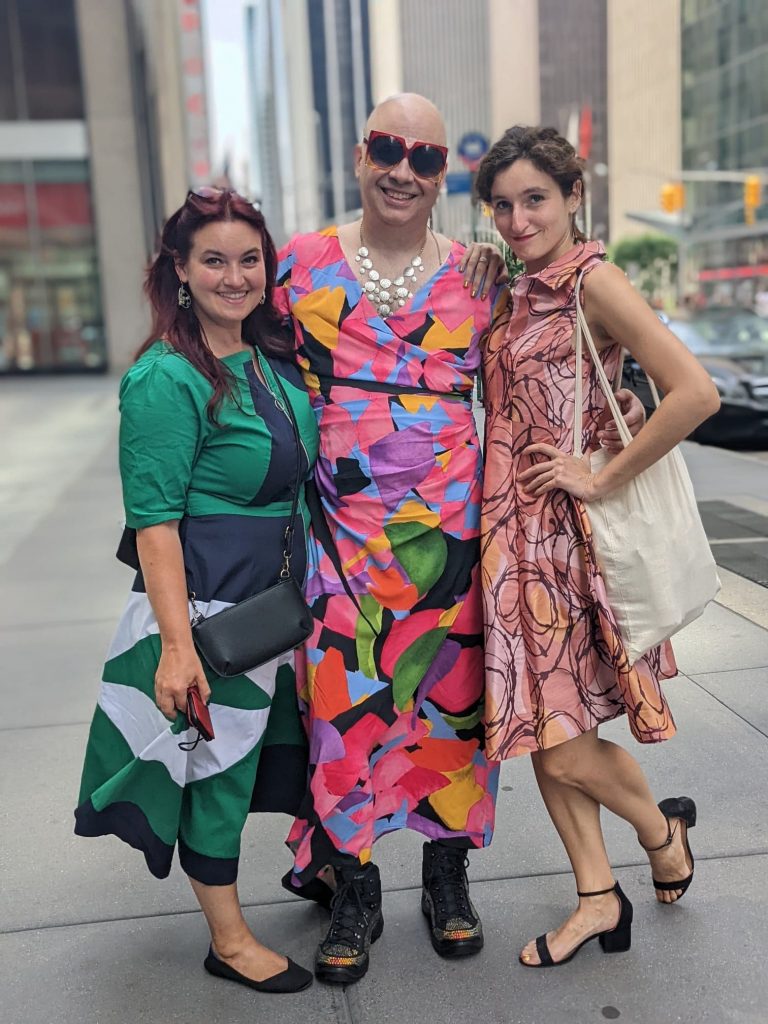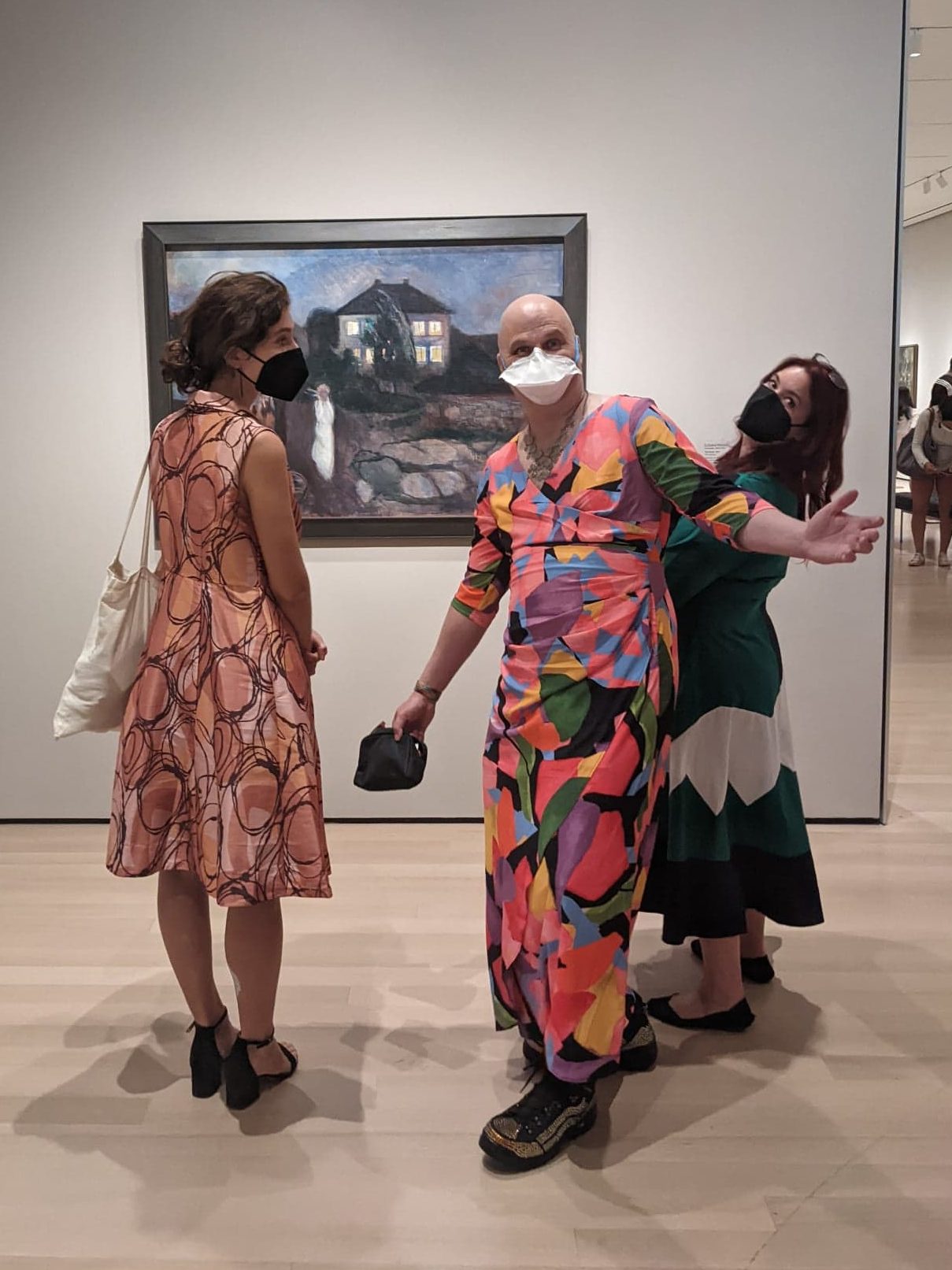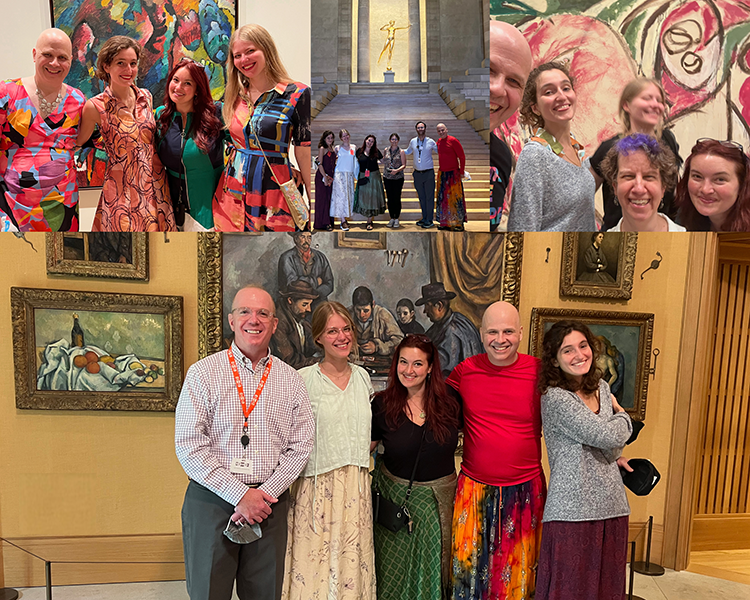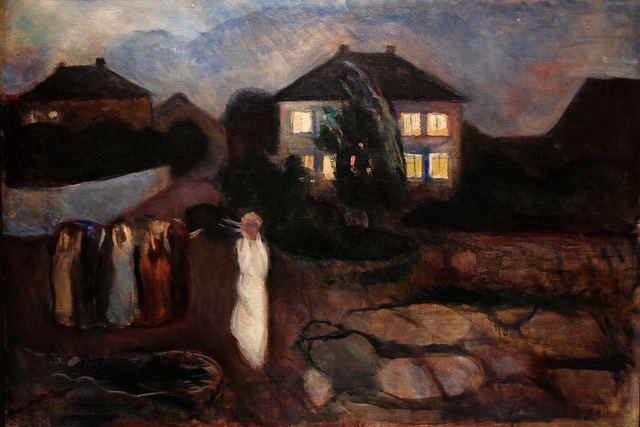You can run a personal Slow Art Day any day of the year. All you need is our simple slow looking algorithm (we use that term with a bit of a wink), which we have honed over decades (see below).
To help you understand how this works, I’ll walk you through how I and the Slow Art Day core volunteer team did our own Slow Art Day at MoMA (and other museums) in 2022.

Here’s how it works
Pick a museum, gallery, church, sculpture park, street art scene, or other venue.
Then organize your group. We recommend groups of 4 (although you can do it with 2) and if you have more than 4, then break up into smaller groups. (Note: yes, you can do this by yourself.)
Once your groups are formed and you have arrived at your venue, then here are the steps.
- Assign a “selector” for the first gallery/section/spot
The ‘selector’ is the person temporarily assigned to select an artwork for everyone to look at slowly. - Then everyone looks around for a few minutes
Ask everyone to look around the spot for a few minutes while the selector chooses a single piece to focus on. - Look slowly at the chosen piece
Once the selector has made their choice, everyone spends 5 to 10 minutes looking together at the chosen artwork. - Talk to each other
Once the slow looking has ended, then the selector begins the conversation about the experience. Simply ask: what did you see? You don’t need experts and you don’t need to moderate. Just listen to each other. People will have a lot to say. Let them say it. In fact, this is a wonderful moment. You will build intimacy and trust as you learn how each other sees and thinks. - Choose the next selector, move to the next gallery, and repeat
That’s it. Really simple. Nothing else required.
If you want to get a sense of this in action, then below are my notes on one of our slow looking session at MoMA.
Thanks!
Phyl
Founder, Slow Art Day
On that day in 2022, the group of us went to MoMA and, as you can see in the photo above, we dressed up. Note: If you dress up like we were – then you’ll likely draw a crowd whenever you slow down to look at a piece of art intensively. That’s certainly what happened to us. No matter what we looked at, it became a temporary “Starry Night” or “Mona Lisa” with big crowds assembling to figure out why everyone is looking (note: this is a great way to get visitors to pay more attention to less well-known art).
Gallery 1: Johanna (selector)
At MoMA, Johanna was the selector for the first gallery we visited. She skipped “Starry Night” and chose Edvard Munch’s “The Storm” (1893). Everyone knows Munch’s “The Scream.” Fewer know “The Storm” and we were glad to bring more attention to this terrific painting.

In our discussion after the slow look, we of course learned more about this artwork and more about each other. Johanna and Jessica Jane were the best at noticing detail. Meanwhile, Phyl showed their sensitivity to color, while Ashley’s eye for design picked up composition and texture.
We finished this first session feeling more connected to each other, and to the art. It was beautiful.
Gallery 2: Jessica Jane (selector)
We then moved to the next gallery, where Jessica Jane was the selector. And so it went as we slowly looked our way through MoMA, the Met, the Whitney, The Barnes Foundation (in Philadelphia), the Philadelphia Museum of Art, and Philadelphia’s Magic Gardens.

Special thanks to the educators who hosted us along the way, including:
- Bill Perthes, Director of Adult Education at The Barnes Foundation
- Linnea West, Manager of Adult Public Programs, Philadelphia Museum of Art
- Greg Stuart, Coordinator of Adult Public Programs, Philadelphia Museum of Art
- Lisa Dombrow, play activist, educator, and volunteer at MoMA and AMNH (and original ‘slow looker’)
If you do a slow looking session, then post about it and tag SlowArtDay!
– Phyl, Ashley, Jessica Jane, and Johanna

